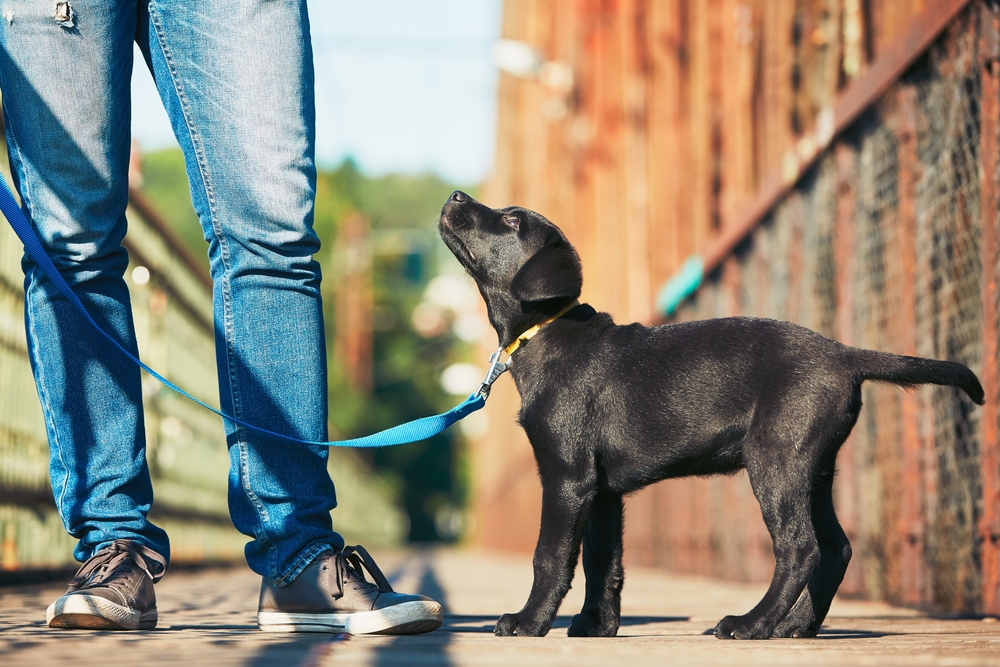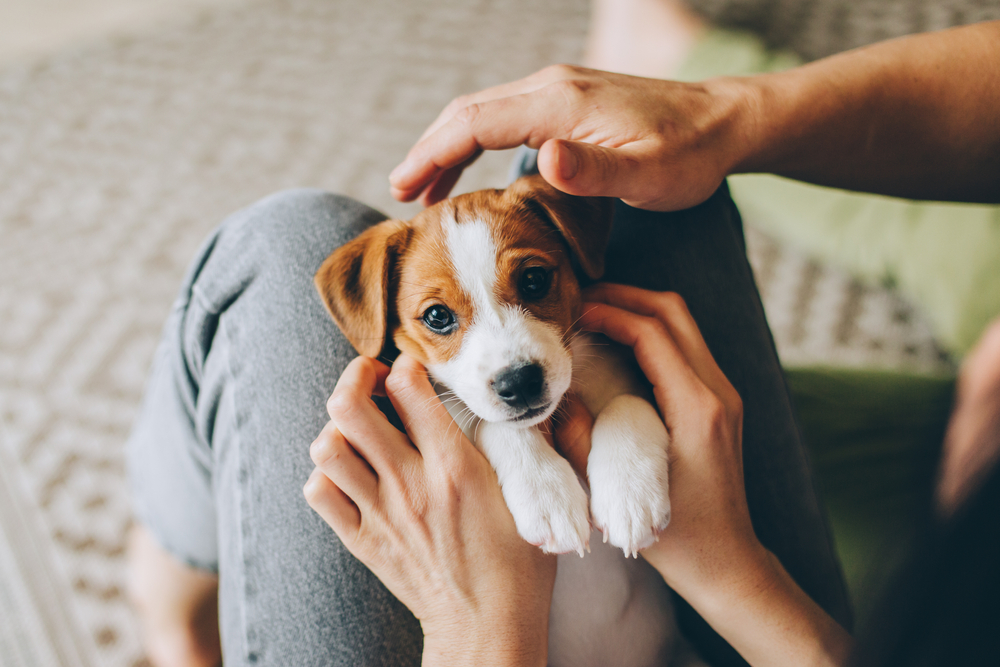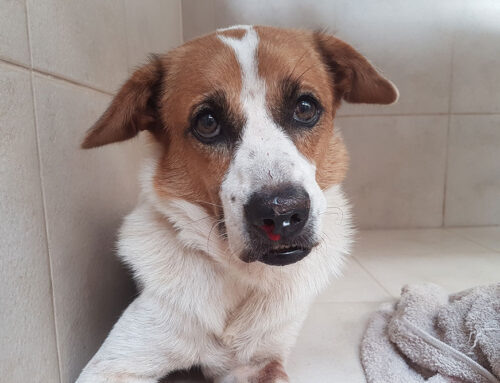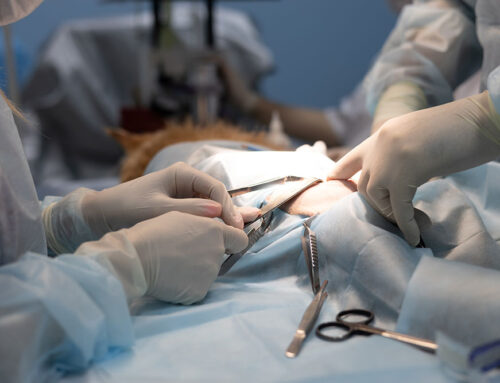Hi, it’s me, your 8-week-old golden retriever puppy, Oliver—but you can call me Ollie. I’m so excited to experience life’s adventures by your side, and I know we will have a great time during our first year together. My first year will be one of incredible growth and development, so I wanted to share a few pointers on how to help me reach my maximum potential.
Let’s dig in and enjoy growing together!
Follow along as our North Waterloo Veterinary Hospital team shares young Ollie’s journey through his first year with his new family. This golden retriever puppy describes tasks his new family needs to tackle to help ensure he grows up healthy and happy. Learn how to care for a new pup of your own by following Ollie’s tips.
A puppy’s health care needs
To help me grow up healthy and protected from infectious diseases and parasites, I need regular wellness and preventive care provided by my North Waterloo Veterinary Hospital veterinarian. She will perform a physical exam at each visit to ensure I am growing properly, and to check for any potential congenital conditions that may become apparent. We will talk about how house- and crate-training are going, and how I am being socialized, introduced to new situations, people, pets, and things. And we’ll definitely talk about food! The diet you feed me is a huge part of my overall health care plan.
In addition to taking a peek at my vital signs and body systems, and discussing key topics that contribute to my development, my veterinarian will also administer vaccines. When I receive my vaccinations on a regular basis, you help protect me as I explore the world and make new friends. Plus, the parasite prevention my veterinarian provides will help me avoid heartworm disease, fleas, ticks, and intestinal worms that I can pick up anywhere other dogs hang out—like puppy class.
During your puppy’s first year of life, they will have a series of wellness visits designed to support their own immune system, as the immunity their mother passed on to them fades. During your puppy’s regular wellness visits, we will also monitor their growth and development to ensure your furry pal stays on track.
A puppy’s dietary needs
As a rapidly growing puppy, I am all about food! But, if my family gives into my constant demands for snacks, I will grow too quickly for my developing joints. That extra weight I pick up when I’m a pup can cause long-term orthopedic problems, so a well-balanced, properly portioned diet is key to my continued good health.
Providing me with the right kinds of treats and chews is also important, because many commercial treats are loaded with fat, sugar, and calories, which can make me pack on the pounds. Opting for healthy treat options and long-lasting dental chews are great ways to keep me—and my mouth—in shape.
A diet geared toward your puppy’s breed or projected adult size will provide them with the nutrition they need to develop at the proper rate. Correctly portioning out your puppy’s meals help them maintain a healthy body condition, which will serve your pup well in the long run.

A puppy’s social needs
I need friends! Without plenty of positive socialization, I may be scared of new situations and people, which can lead to numerous problems throughout my life. To ensure I receive positive socialization, which is the exposure to stimuli (e.g., people, animals, places, sounds, sights, handling), allow me to approach new things at my own pace, then reward me for being brave. For example, when meeting your friends, let me come say hello, rather than allowing them to corner me and scoop me up for cuddles. However, I’ll probably be so excited to meet a new playmate that I won’t mind!
A great way to help with my early socialization is by enrolling me in puppy class. While these classes teach obedience basics, such as sit and down, they focus on exposing me to a variety of new things that I might encounter in the future. I’ll meet people in hats and wheelchairs, walk across slippery floors, climb stairs, play with puppies of all personalities and sizes, and learn how to tolerate my ears, mouth, and paws being handled.
Positive exposure to novel situations and things during a puppy’s prime socialization period of around 3 to 14 weeks of age is incredibly important for their development into a confident, calm adult dog. Ideally, socialization is a lifelong process, as your dog is continually learning about the world around them. Rewarding your furry pal for bravely exploring and remaining calm can help them become well-mannered in any situation.
If you have a new puppy, we are eager to welcome them to our North Waterloo Veterinary Hospital family! Give us a call to schedule your new furry pal’s first visit and set up their wellness program.







Leave A Comment